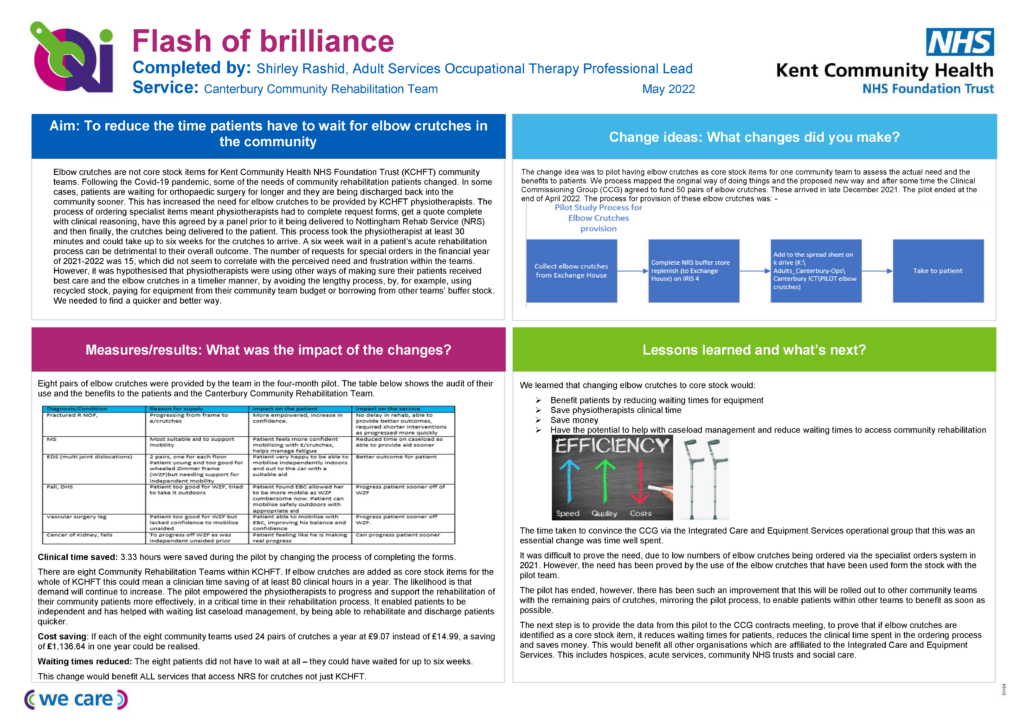This work aimed to reduce the time patients have to wait for elbow crutches in the community.

The elbow crutches Flash of Brilliance
Following this work, project lead Shirley Rashid went on to develop an elbow crutch recycling scheme at KCHFT, after receiving a stock of 50 pairs. This was thanks to funding from the Kent and Medway Integrated Care Board (ICB).
Before KCHFT had its own stock, getting elbow crutches for people in the community meant ordering a pair each time they were needed, lots of form filling by clinicians and patients having to wait.
However, once she had the stock, Shirley realised there was another issue, the elbow crutches were non-returnable. Concerned about the impact on the environment and keen that the crutches should help as many people as possible, Shirley set about putting a new system in place. Thanks to her efforts and a pilot scheme, they can now be taken back to the KCHFT community hospital or clinic where they were given out. Work is also underway to set up recycling stores at Deal Hospital and Tonbridge Community Hospital, where various equipment could be returned.
Shirley said: “We were seeing people in the community who needed these, but ordering them individually took a lot of form filling and waiting time for patients.
“We did some work with the ICB and demonstrated there was also a need for us to have a stock of these for people we see in the community, so we could give them out straightaway.
“The problem was people could not return them. Physiotherapists give out a lot of equipment and I felt a responsibility around sustainability, which is why I set up the recycling scheme.
"We’ve had good results so far. Patients get the crutches quicker and feel better that they can return them to the NHS. We aim to increase the return rate of equipment prescribed by KCHFT, therefore increasing its responsible recycling and re-use.”
KCHFT therapists mainly give elbow crutches to people who have suffered fractured hips or knees and those who have come out of hospital and need rehabilitation. People with conditions such as MS and Parkinson's Disease also use them, to help with mobility and support.
Shirley said: "We find that younger people who have a long term condition, prefer elbow crutches to a walking frame. They have a more youthful and sporty image, with people often associating them with a sporting injury. Sometimes people don't need a Zimmer frame and elbow crutches are a practical help when going up and down stairs.
"As well as improving the environmental impact, I'm so pleased we can now help people quicker. Patients have commented that crutches increase their independence, help them get out of the house, that they feel more confident and empowered and like they are making progress and that they have helped with both physical and mental health."


